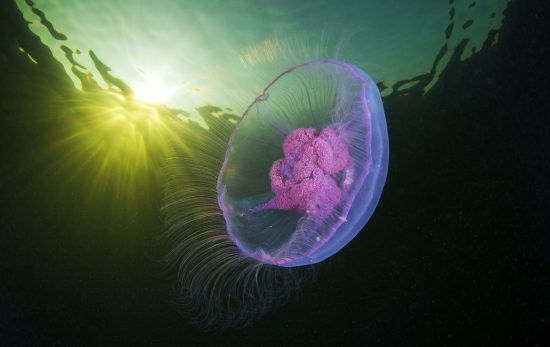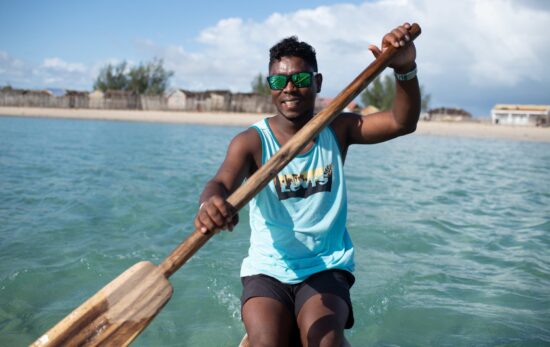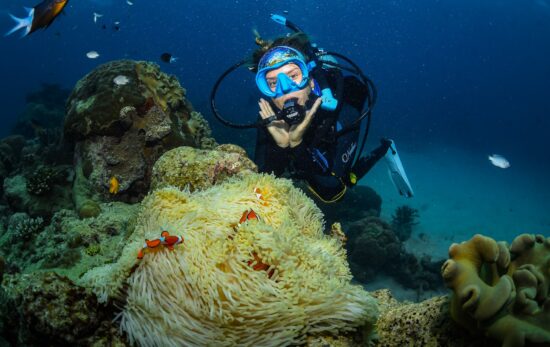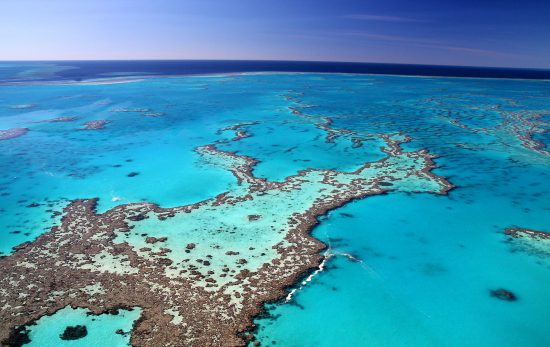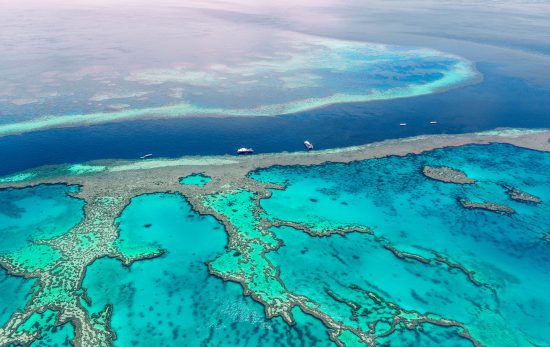Image: Sylfia and the Expedition Drenched crew arriving at Lord Howe Island. Image by Captain Nate Porter.
What I think everybody has learnt this past year and a half is that things don’t always go to plan.
Diving throughout this strange, new, COVID world has meant a few things to us. Namely, if we wanted to continue living our ocean-oriented lifestyles, we would have to follow a new set of rules. They are as follows:
1. Go with the flow
One thing we’ve noticed is that it is almost impossible to make solid plans throughout these times, especially if you’re living on a sailboat. With constantly evolving weather and restrictions, we have found that making general, malleable plans works best.
This year, we have been forced to do less thinking about the future and much more accepting of the situation that life throws our way. Due to COVID restrictions, our sailboat is currently “stuck” in the beautiful country of Australia. As you can imagine, we couldn’t have been happier when our original idea to stop over for a month evolved into a new voyage of circumnavigating the whole country.
Just a few months ago, we set our sights on Lord Howe Island. We figured that if we were going to circumnavigate the country, we couldn’t miss the most southern reefs in the world.
Lord Howe Island is home to a plethora of marine life. The East Australian Current brings warm water from the tropics, and as a result an extremely high biodiversity of overlapping tropical and temperate species.

Warm water currents transport the eggs and larvae of many marine species here to the island. These currents maintain water temperatures critical for coral growth and reef formation (Hutton and Harrison, 2021).
Most importantly, it was also the perfect COVID Hideout. With only around 300 human residents, and not many travellers coming in and out during lockdowns, the marine life was sure to be bustling.
The island was calling our name, but in order to get to these World Heritage Listed sites, we first needed to make some sacrifices.
2. Be prepared to stay a while
Since we have been avoiding lockdowns as much as possible, this means that we have been spending the bulk of our time off grid, hiding out at isolated islands and far off reefs. In our escape to the most remote places, we have found that we often stay longer than we plan.
While we’ve always had a rough outline of where we want to head, we have had to stay flexible with our schedule. Lord Howe required us to quarantine for 2 weeks before arriving on the island. We decided to isolate in the best way we knew possible: out at sea. On our sail from Tweed Heads to Lord Howe, we spent over 3 weeks sailing, diving and surfing in quarantine at both Middleton and Elizabeth Reefs.

When travelling, it’s nice to be able to live somewhere for a while, to stay a couple of weeks rather than a couple of days and experience it through the eyes of a local rather than a tourist.
More time is always more valuable than less, and for us, more time out on the reefs certainly had its benefits. We got to know the anchorage, had countless encounters with our friendly shark friends and even found the local octopus’ den.

3. Be prepared to be self-reliant
Lord Howe Island is located around 570km east of mainland Australia. This meant that the sail would be long (4-5 days) and testing. We had a new crew on board and half of us had never sailed before. As such, many preparations were in order.
Preparations meant time spent on massive food orders: stocking up on all the necessities like flour, oats and snacks. Toiletries, canned foods, rice, tea towels -you name it, we got it.
Moreover, we needed to pack entertainment. Imagine being confined in close quarters with 10 other crazy individuals, without internet or reception. We needed to pack games, sports gear and musical instruments to ensure the crew remained healthy and sane for the sail.
During COVID times, you may go out on a dive vessel with limited numbers, and it will be likely that you are one of the only vessels out there. Therefore, it is more important than ever to be prepared, updated and informed about rescue equipment and who to call in an emergency. For more info, read more about Responsible Dive Travel in the COVID Era.
We were out there all alone, and when things went wrong (which they did on a daily), we had nobody to call. We broke many things, including our rudder, dinghy, toilet (on countless occasions), and water maker, just to mention a few.
One night while we were anchored at the reef, a passing squall brought terrifying 57 knot winds. Even with 50m of chain out, our huge (150kg), steel/lead anchor was bent at a 45-degree angle after being pulled at such force.
Luckily, we survived the night, so we were able to move onto rule #4: Share your journey.
4. Share your journey
While this COVID world certainly comes with inconveniences, it also gives us the luxury of being able to dive the most magnificent sites in the world without their typical hustle and bustle.

In these times, large tourist destinations are often devoid of all other boat traffic. Often, a traffic jam on the reef can be a distraction from its natural beauty. Being less congested means that we can fully be in awe with one place.
We believe that it is important to share your stories and encounters of your dive trips. This helps to spread ocean awareness and inspire connection to the natural world with other humans.
Often, you may go out with less numbers on board, giving divers a more personalised tour and a fuller experience (and a higher chance of getting the perfect shot, am I right?).
While many commercial operators have unfortunately taken a hit during the pandemic, less tourism in general has certainly given the marine life a much-needed break from fishing, pollution and boat strikes.
“We’ve been trying to stay positive and see the bright side of our new COVID times. For one thing, the pandemic has definitely had a positive impact on our marine life,” Our Captain, Nate says.
Here on the island, we will continue our vessel’s mission, which is to film and document the underwater marine wonders and share them with the world.

We hope to showcase ocean-positive organisations and their work, and to inspire a connection to the natural world in a relatable, first-person perspective. Keep updated on our weekly episodes of our adventures around Australia on our YouTube channel.
5. Whatever you do, never stop diving
Diving during COVID has been a release from the stressors of the human world. There’s something about diving deep down into the blue and immersing yourself in the natural world that provides a sense of release.
You are likely to want to avoid hotspot locations at all costs. For us, the plan going forward is to bypass all of mainland Australia and sail straight down to Tasmania. This way, we can continue to avoid lockdowns on our journey south. On your travels, you might want to similarly read up on the COVID-19 Diving and Travel Restrictions by Country before you head anywhere.
However, if you do find yourself stuck, and things are getting rough on land, consider getting some aquatherapy and signing up for a course at your local dive shop using the PADI Dive Shop Locator or book a course directly with PADI Adventures.
The troubles from up above no longer seem to matter when you’re under the surface, listening to the bubbles from your reg and the sound of your own breath. Oh, and it also helps when you are surrounded by a billion cute animals to watch and find!

COVID times haven’t been easy for anyone. But while we have been faced with challenges, our dedicated crew have tried to take on the most positive outlook possible.
We have had dives that we haven’t believed possible, with epic vis and expanses of beautiful reefs to ourselves. The pandemic has given us the perfect excuse to escape the cities and break away to the most remote sites.
We’re stuck in a huge, beautiful country and we get to be out here with nobody else.

Article provided by Nate Porter and written by Tiffany Dun – Marine Biologist & Crew Member of Expedition Drenched.
References:
Hutton and Harrison, 2021, A field guide to the marine life of Lord Howe Island.
